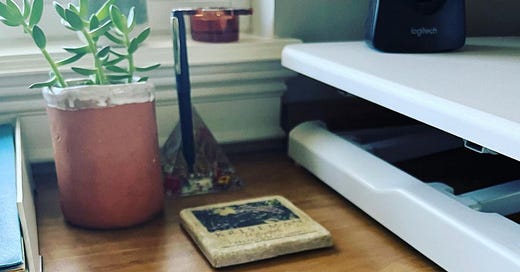Unlocking your stories
Memoir writers often struggle with finding their unique stories. They want to write, but they're not sure what to write.
Will anyone care what I say? Is my story important? What is my story?
These questions dogged me before and during the writing of Accidental First Lady: On the Front Lines (and Behind the Scenes) of Local Politics. I knew I didn’t need permission to write, but validation was the ego boost that ignited my writing journey.
Occasional self-doubt threatened to stall this project, but I refused to concede paralysis. I’d hit a writing milestone, which meant I was one step closer to finishing my book, but those three questions would rear their ugly heads.
Would my stories resonate with readers was the $64,000 question. I learned that while not everyone will read my book, those who did found meaning in my words.
The task of writing about 2 decades of my life required me to dig deep, determine which stories I wanted to tell, and how much I wanted to share. On those days when I found myself in the chair, fingers on the keyboard, a blank word document staring back, I’d leave.
I wasn’t giving up, but I was giving myself time to brainstorm in a neutral space. Walking outside without distraction freed me to make sense of thoughts and find new stories. I also turned to writing experts like Anne Lamott and Roy Peter Clark, whose techniques and solutions I coveted like a secret unlocked.
Humans are curious creatures. Crowded bookstore shelves, and the multitude of writing platforms like this one prove that stories matter. Others have shared with me the desire to tell their own stories. Students in the memoir classes I’ve taught bravely bounce their ideas off me, looking for guidance and the same validation I sought as a new author.
I always tell them what my childhood friend, also a memoirist, told me when I asked whether I should write my book.
“If it’s in your heart, do it,” she said.
I listened to her advice and wrote my book that told my stories about political life in a non-divisive, non-partisan way. “Pub Day,” as we authors call it arrived Oct. 29, 2021. A case of pre-publishing imposter syndrome delayed my book marketing efforts, and I was elated when a friend sent me a screen shot of my book debuting at #1 in the “Women in Politics” category on Amazon.
I’ve learned since that post-publishing can be as gratifying as the first time you hold your book in your hands.
When people ask me if they should write their story, I tell them that all our stories have value. They deserve to be told.
The gift of the connectedness and community that is created when sharing our stories is worth making peace with the idea of being vulnerable.
The epidemic of loneliness is pervasive, as the byproducts of isolation from Covid-19 still exist. Even introverts like me missed the social connection of in-person exchanges. Books filled that void. They reassured us that we weren’t weren’t alone. Aspiring writers became new authors as a mechanism for passing the time inside during Covid lockdowns.
Whether writing for fun, to leave a family legacy, or as catharsis for the past, starting is often the hardest part. That’s when returning to simplicity as a tool for beginning is valuable. Who doesn’t remember walking into English class with a prompt written on the blackboard (I know, I’m dating myself!) in all capital letters?
Prompts can spark ideas that lead to paragraphs, which grow to blog posts, and can be transformed into chapters. A prompt can unlock your unique idea and jumpstart your author journey.
I’m grateful for the generosity of my local writing community. The first day I posted a sneak peek of my cover on Instagram, another local author messaged me with an invitation to coffee to chat about book marketing. Since then, I’ve tried to help other authors when possible.
If you’re thinking about writing a book, but need a tool to begin your writing journey, I invite you to grab my free guide, “Unlock Your Memoir: 10 Inspiring Writing Prompts to Jumpstart Your Story.”
I want you to enjoy the same gratification and pride I felt after I published my book. Whatever your method, no matter your status as a writer or author, the first step is the hardest. I encourage you to take it and embrace the journey. The words will come if you believe in the power of your story. I wish you well on your memoir writing journey.




